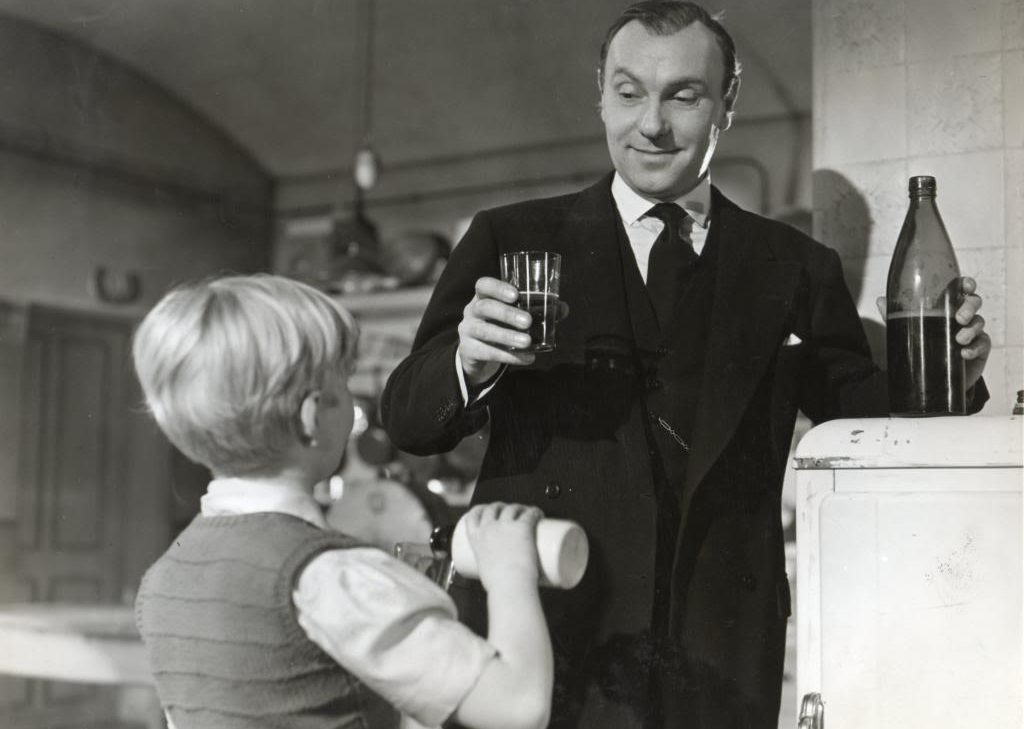I’m a huge fan of director Carol Reed’s “The Third Man.” Joseph Cotton is pulp novelist in seedy post-war Vienna investigating the mysterious death of an old friend. Orson Welles is excellent as Harry Lime, Cotton is better and I always assumed Reed just stayed out of the way and let the heavyweights do the heavy lifting. The good news is, I was wrong, the guy can direct the hell out of a film.
Newly re-released, “The Fallen Idol” (1948) is brilliant. It’s a tale of loyalty and betrayal, faith and faithlessness, sin and salvation, marriage and divorce. The film is unique in the way that it is largely told through the perspective of an innocent child and bystander, Phillipe (Bobby Henrey, who only made two movies and ended up as a chaplain in Greenwich, Connecticut later in his life). He lives in a French-speaking country’s embassy in London. His Mom is long gone and ill, so she plays no part in Phillipe’s life.
The screenplay is adapted by Graham Greene from a novella he wrote. As is usual, Greene lays on the Catholic imagery and guilt to brilliant effect as Phillipe is being raised by a kind valet named Baines (a subtle and nearly perfect Ralph Richardson) and his evil-beyond-words wife (Sonia Dresdel, who is wonderful, here, in a detestable way). Phillipe has a pet snake, and plenty of gorgeous London scenery to look out upon. The embassy itself qualifies as a character too; sweeping staircases, gorgeous furniture in ornate rooms. Vincent Korda’s set designs are a thing of beauty.
Short of role models, Phillipe idolizes Baines, even as Mrs. Baines orders him about and makes Phillipe’s life hell. When the ambassador leaves to fetch his long-ill wife, Phillipe is left to realize there is a love triangle between Mr. and Mrs. Baines and the lovely Julie (Michele Morgan, also turning in a solid acting job). Our impressionable protagonist overhears a conversation that is too adult for him to understand, but it kicks in the door to adult perception. Worse actors would have slaughtered the scenes, but Reed gets nothing short of brilliant performances out of the entire cast. Even the supporting actors shine: There’s a lady of the evening with a tongue like a knife, a kindly local bobby on the beat, detectives galore, and a doctor with a keen eye for subtle details.
The cinematography of Georges Périnal is amazing: The London Zoo looks just as amazing as does the empty embassy as the backdrop for a game of hide and seek in the darkness. Watching the film unfold, you get the sense that the boy’s life of privilege is more likely a life of loneliness pierced by reality that may forever alter his worldview. To give away much more of the plot would be pointless and spoil a great deal of the thrill of seeing a well-told story unfold in a way that does not seem rushed, but in no way drags.
The film won a British Academy award and deserved it, too. There are a handful of films I recommend without hesitation: “It’s A Wonderful LIfe,” The Godfather,” “Citizen Kane,” “Walk the Line,” “Yojimbo” and “Monty Python and the Holy Grail” are a few that come to mind. Add “The Fallen Idol,” opening September 16th at Landmark’s Ken Cinema, to that esteemed list.
